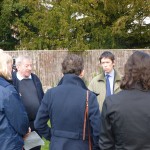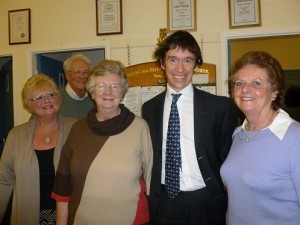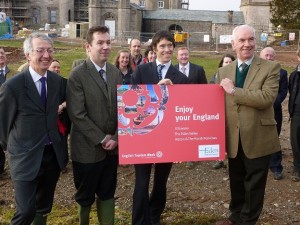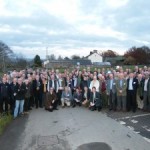FILM DIRECTOR SHOWS ADVENTURE IS NOT JUST FOR FILMS
Article first published in The Financial Times on 30 March 2012.
When Hollywood film director James Cameron surfaced this week from the deepest place on earth, he was admired for his scientific achievement. We were told about his experience as a diver and the unique data collected on his expedition; about how his latest 3D cameras recorded new scales and distances, and his human eye discovered new details among the waters of the Mariana trench.
If, however, the 11 tonne craft had become trapped, seven miles below the surface, killing Mr Cameron, professional standards would have been applied more strictly. Divers and scientists would have analysed the details of his training and experience. They would have argued that he should have sent a professional oceanographer; or an unmanned craft, which would have been cheaper, safer and (because it could have remained down there for longer and collected more data) more effective. He would have been criticised for recklessness, extravagance and amateurism. And yet these things are exactly what made his journey so magnificent.
It was an adventure: a man separating from his kind, undertaking a terrifying journey, returning as a hero. The scientific data that he acquired may be of minor significance. His adventure is not. Adventurers matter. It was the desire to be a hero that drew Alexander to march his tiny army across the desert and attack the massed forces of the Persian king at Babylon – and, by so doing, to bring Greek civilisation to India. It was a quieter but equal sense of chivalry, patriotism and sacrifice that kept Meriwether Lewis and William Clark moving on to the Pacific north-west, thus making possible the modern United States. And if Mohammed was able to persist, in penury and peril, and keep his faith and that of his followers long enough to lay the foundations of a religion that lives on 1,400 years later in one and a half billion souls, it was because he too had the virtues of a hero.
All these men felt that some things were more important than their lives; that their work, their god, their country, or even less immediately attractive things such as their personal honour and fame, could be worth dying for. This was true of the Tudor politicians who knew their last speech might be on the scaffold. Even politicians in more recent, safer ages were driven by grand commitments and sacrifice. British prime ministers such as Robert Peel or William Gladstone and US presidents such as George Washington – despite their privileged education and their inherited millions – brought a seriousness, diligence and ambition to their politics, and produced policies that grew ever more radical as they grew older.
Art, too, draws on sacrifice and struggle. Leo Tolstoy’s life of unpredictable rejections – his battle against his class, his service in Sevastopol, his refusal to make money from his books, his homespun clothes and hand-cobbled shoes, his morning ritual of drawing water – reinforced the care, energy and precision that he, as an old man, still invested in his last novel, Haji Murat. The commitment of the hero matters, however, not only for what it does for the world, but also for what it can mean in every individual’s life: the capacity that the poet Robert Lowell called “man’s lovely, peculiar power to choose life and die”.
Today, our culture finds little comfortable in a heroic worldview and works to prevent it. Death is now to be pitied and discouraged, not admired. Gladstone or Tolstoy’s lives are belittled as hypocrisy or selfish eccentricity. Honour and pride, which philosophers once praised, now to us are nothing but vanity; “greatness of soul” appears to be simply arrogance. The central classical heroic creed – “ever to be the best and stand above all others” – seems like a megalomaniac disorder. The martyrdoms of obscure booksellers in 1540s London, their dignity and truthfulness, which touched the imaginations of millions over 10 generations, no longer interest us today.
Hence we prefer to evaluate Mr Cameron’s journey – and others like it – for its scientific “usefulness”. If he had been killed, and we were forced to confront the real risk and irrationality of the dive, we would have pitied him, patronised his corpse and wondered how we might have prevented him from doing it. (Those limited heroes that we still allow, who are not celebrities, must be accidental; unconscious of their heroism and not initiators but victims).
No good can come from trying to restore a lost heroic age. Heroic virtues are not single actions but part of an entire texture of society – of structures, of education, of opportunities, of vocabulary – which we have lost and now mistrust. Nor should such virtues always be mourned: they have been a source of bad faith, warfare, inequality and oppression: part of the energy not just of great thought, or bold politics, but also of empire and slavery, exclusion and the workhouse.
But to try to regain energy, sacrifice and a delight in risk is not a futile shuffle backwards in time. The chance, at some point in our mundane lives, to test the limits of the human remains a possibility for all of us. If we forget this, and no longer believe that our projects and commitments matter more than our comfort or our lives, we will struggle to leave much in our learning, politics or action that will ever challenge or interest our descendants. We will also lose the capacity to surprise ourselves.
Of course, this is all a bit much to lay on the broad blue shoulders of the director of Avatar. But I would be tempted to praise Mr Cameron not for the pixels and numbers he acquired, but for his fears as he closed the hatch, cramming his tall frame into the tiny cabin, and for the moment when he stepped away from his cameras and was conscious of himself, gazing into the cold silent darkness of the deep.















